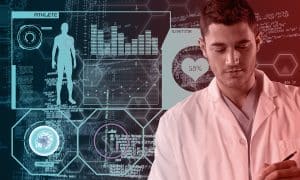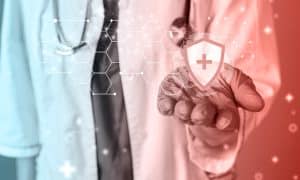Let’s start with some reassuring episodes of healthcare and the role of science and technology in enabling it. As a quick recall, India has been implementing several disease eradication programs over the past few decades.
These have been mostly vaccine-driven and through awareness campaigns and the involvement of healthcare experts, we have been able to make remarkable achievements. For instance, we announced that India was completely polio-free in the year 2014. Besides, smallpox was eradicated in 1977 through vaccines, and plague was eradicated as well.
Even during the most recent COVID-19 outbreak, we were one of the top countries to research and roll out vaccines for the pandemic.
Now, the development of vaccines for lethal diseases would be impossible without clinical trials. However, clinical trials are time-consuming and involve their own set of concerns and bottlenecks. To throw in some context, here are some interesting statistics.
Challenges In Conducting Seamless Clinical Trials
- Over 80% of the clinical trials are subjected to delays because of recruitment concerns as they are predominantly volunteer-driven.
- Clinical trials are expensive. They account for around 40% of the US pharmaceutical budget.
- Delays in clinical trials cost sponsors anywhere between $600,000 to $8mn.
- It takes around 10 to 15 years to develop an effective drug as 90% of the developed drugs fail.
While there are more such statistics, these ideally set the context on the nature of clinical trials, the challenges involved, and the factors hindering the launch of successful drugs. Besides, conventional clinical trials and tests have been predominantly on animals and cell cultures.
Meaning, that they don’t accurately predict the response the human body would have to drugs. This is where Clinical NLP comes in.
Role Of Clinical NLP In Propelling Clinical Trials
Clinical NLP, in the simplest of words, is revolutionary. They are rewriting the ways clinical trials are conducted. They are enabling the seamless extraction of critical insights from massive volumes of healthcare data – read unstructured data – and accelerating the myriad aspects including:
- Drug discovery
- Fast-tracking patient and volunteer recruitment for trials
- Accurate prediction of reactions and adversaries and more
Advantages Of Deploying Clinical NLP In Identifying Potential Drug Targets & Biomarkers
The deployment of clinical NLP in clinical trials includes:
- Improved accuracy in detecting patterns and reactions
- Improved efficiency and speed thanks to simulative modules to conduct trials for chemical compositions with higher probabilities of working
- Personalized medicines by taking into factor patient-specific biomarkers, side effects, lifestyle, and more
- Reduced costs thanks to the identification of promising patients or volunteers for trials and medications for trials
Understanding The Workflow Of Deploying Clinical NLP

Similar to how clinical NLP models can be used for population health management and summarizing patient health records, they can be used to identify patient biomarkers as well. However, this involves a strategic and systematic approach. Let’s break down the process for easier comprehension.
Data Acquisition: The first stage involves the collection, compilation, and processing of massive volumes of clinical data such as text, research papers, reports from clinical trials, data from EHRs, and more.
Extraction Of Information: The compiled data is run through NLP models, where they work on extracting relevant information as specified by stakeholders. This could detail disease phenotypes, gene expressions, protein interactions, or other parameters.
Relationship Establishment: In the extracted set of information, NLP models further establish relationships and associations among genes, diseases, proteins, and other specifications.
Feature Selection: Through the implementation of advanced computational techniques such as machine learning models and network analyses, key molecules and pathways involved in disease evolution are identified.
Biomarker & Drug Target Validation: Once the relationships are established, it becomes easier to identify promising targets. They are further validated through wet lab experiments and airtight clinical studies to reaffirm their safety, efficacy, and efficiency.
Real-world Instances Where Clinical NLPs Were Deployed
- A recent study brings to light the identification of a new gene mutation associated with Alzheimer’s thanks to the use of NLP to process bulk volumes of clinical data.
- In the clinical oncology space, NLP has been used to analyze data from EHRs. This deployment paved the way for a breakthrough where a biomarker of a specific protein expression was identified. This was further used to study the scope of personalized treatment and optimization of patient outcomes.
Addressing The Downside: The Challenges
Clinical NLP models show incredible promise. However, they also require certain recalibrations due to the challenges associated with their deployments. Such bottlenecks include:
- Lack of availability of consistent clinical data to train and optimize NLP algorithms
- Computational power, digital and physical infrastructure required to process such massive volumes of healthcare data
- Stringent processes around validation and regulatory approvals from healthcare stakeholders and more.
The Way Forward
We might be on the brink of a revolutionary breakthrough stemming from the deployment of clinical NLP models. If we could factor in the challenges and formulate strategic corrective measures, we could fast-forward the time demanded for clinical trials and drug discovery.
One concern addressed concerning the lack of availability of consistent healthcare data to train NLP models can be seamlessly tackled by collaborating with a trusted partner like Shaip. We ethically source high-quality annotated healthcare data that is training-ready.
So, if you intend to realize your enterprise visions on clinical NLPs, reach out to us today.




